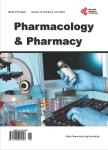Possible Factors Involved in Oral Inactivity of Meropenem, a Carbapenem Antibiotic
Possible Factors Involved in Oral Inactivity of Meropenem, a Carbapenem Antibiotic作者机构:Department of Pharmaceutics School of Pharmaceutical Sciences Health Sciences University of Hokkaido Ishikari-Tobetsu Hokkaido Japan Department of Pharmaceutics School of Pharmaceutical Sciences Health Sciences University of Hokkaido Ishikari-Tobetsu Hokkaido Japan.
出 版 物:《Pharmacology & Pharmacy》 (药理与制药(英文))
年 卷 期:2012年第3卷第2期
页 面:201-206页
学科分类:1002[医学-临床医学] 100214[医学-肿瘤学] 10[医学]
主 题:Meropenem Oral inactivity Secretory transport Degradation Gastric pH
摘 要:Meropenem, a carbapenem antibiotic, is inactive after oral administration and administered exclusively by injection. In this study, in order to address the factors involved in the oral inactivity of meropenem, in vitro permeation characteristics across rat ileal segments was investigated using diffusion cells. Moreover, stability of meropenem was evaluated in the Japanese Pharmacopoeia (JP) 1st and 2nd fluid for disintegration test. Cefotaxime, ceftibuten, and faropenem were used for comparison. The permeation of meropenem across rat ileal segments was approximately 5-fold greater in secretory direction than in absorptive direction. The secretory-oriented transport of meropenem markedly diminished by replacement of D-glucose in the experimental medium with unmetabolizing 3-O-methyl-D-glucose, suggesting that the secretory transport of meropenem was an energy-dependent process. Cefotaxime exhibited extensively secretory-oriented permeation. On the other hand, much weaker directionalities were observed in ceftibuten and faropenem. While meropenem as well as other three β-lactam antibiotics was stable in JP 2nd fluid (pH 6.8), it declined rapidly in JP 1st fluid (pH 1.2). These results suggest that, in addition to the hydrophilic property of meropenem, its instability at gastric pH and secretory transport in the small intestine are possible factors involved in the inactivity of meropenem after oral administration.



